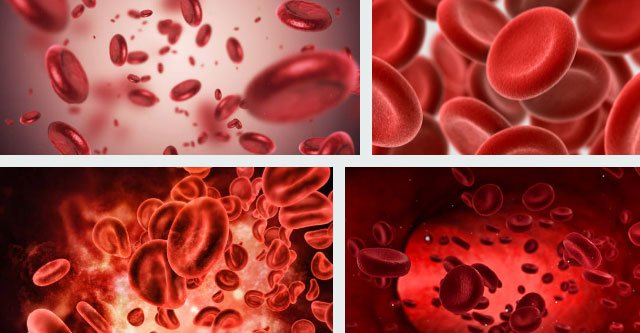Last Updated on July 19, 2021 by Dr Sharon Baisil MD
Diabetes brings up several different complications that can impair functioning and health in numerous aspects. This is why knowing about your diabetic situation and keeping a close eye on everything is very crucial.
Blood vessel damage from diabetes is a severe issue, and it cannot be reversed. However, it is possible to control this problem and reduce its effects with gradual maintenance and care.
It has been recorded that around 60% to 70% of people develop diabetic neuropathy. Diabetic neuropathy usually starts years after being diagnosed with diabetes. However, it has also been noticed in other diabetic patients.
It all depends on your dietary practices and overall healthcare.
The nervous system is very important to us, but at the same time, very delicate and therefore needs good management. However, it cannot repair itself over time.
Therefore, diabetic patients need to pay attention to their health conditions and take up regular checks.
Nerve and blood vessel damage can be handled with good care, proper maintenance of blood sugar levels, and the right medication.
If not maintained well, these problems can turn into long-term complications that grow serious and negatively affect overall health. Moreover, it can give rise to extreme discomfort and pain in different parts of the body.
There are several ways to keep the blood vessels healthy and out of diabetic damage. We will look at some of the tips that can work to keep the diabetic levels within safe margins and reduce risks of diabetic neuropathy.
But before that, let us try to understand better how blood circulation is affected due to diabetes.
How do diabetes damage blood vessels and nerves?
Diabetes causes hyperglycemia, a condition where the body’s blood sugar levels rise higher than normal levels. This heightened level of blood sugar leads to numerous problems that start with affecting your blood vessels.
The excess presence of sugar in the blood vessels obstructs the proper flow of blood through them. This, in turn, creates difficulty in blood reaching all parts and organs of the body, causing other ailments.
The blood vessels, over time, lose their elasticity and also get narrower. This impairs the smooth flow of blood and can occur in small and bigger blood vessels of the body.
Such damage in the nerves and blood vessels of the body is responsible for numerous health issues. Some of the common parts affected by diabetic neuropathy are – eyes, feet, heart, kidneys, etc.
These ailments can be treated and controlled from going overboard by checking your diabetic levels from time to time. The key is to prevent spikes or extreme plunges in the blood sugar levels.
It is crucial to take early notice of these issues in the body as nerve damage can start mild but, over time, develop into severe problems. They can turn very painful and even fatal.
It can create serious impairment in the heart and eventually cause issues relating to blood pressure and cardiovascular risks. In addition, poor blood circulation often leads to decreased paced of healing and increases the body’s vulnerability to various injuries.
It can affect your vision, and uncontrolled blood sugar levels can even give rise to vision loss. But, on the other hand, it can reduce sensation and thus, lead to unnoticed wounds and injuries.
In some cases, diabetic neuropathy also affects the digestive system, which is one of the primary parts of keeping your diabetic levels under control and preventing complications.
Diagnosis of these conditions and the right medication and care is necessary for proper prevention. Diabetes is a chronic ailment that can spread and affect your holistic well-being if not controlled well.
How does diabetes affect blood circulation?

By now, we discussed how diabetes gives rise to complications in the functioning of the blood vessels. The primary function of the blood vessels is to carry blood throughout the body to and fro.
Thus, any impact on the blood vessels impacts the circulation of blood as well. Improper circulation of blood is responsible for several dysfunctions in the body. In addition, it controls all body organs and can therefore affect overall health.
The high blood glucose levels in the body with time are the major reason behind blood vessel damage. Thus, diabetes affects blood circulation. In addition, due to exposure to excess glucose for longer periods, the fats and proteins in the body become glycated. These glycated molecules called – Advanced glycation end products (AGEs) lead to clogging of the blood vessels.
The body itself tries to repair this damage by depositing cholesterol in the blood vessels. But, unfortunately, this step at defense has the opposite effect as this extra deposited cholesterol adds to the blockage in the blood vessels.
The path for blood flow gets narrower, and there is an obstruction in the smooth flow of blood to the various organs and parts of the body. So it can start showing up in the body as various symptoms.
A plaque-like formation inside the blood vessels disables the blood vessels from keeping the blood flow smooth. This, in turn, gives rise to insufficient flow of blood.
Some of these symptoms seen among diabetic patients may be:
- Pain while walking and other movements
- Cold hands and feet
- Sudden chest pain
- Higher than regular blood pressure
- Decreased pace of wound healing
- Brittle nails on fingers and toes
- Drying skin
- Vision impairments
- Infections and sores on the feet
- Loss of hair
- Erectile dysfunction
Over time, impaired blood circulation can lead to pressure on your heart and increase cardiovascular risks. Strokes, sharp pains, and attacks are some of the severely observed effects among diabetic patients.
Foot problems are some of the common symptoms of poor blood circulation in diabetic individuals. Thus, you must be more attentive to any foot problems and always indulge in caring for the feet and keeping them clean.
Poor blood circulation can also be caused due to other factors such as:
- Imbalance in blood pressure
- Heart diseases and cholesterol
- Smoking
Like blood vessels and the nervous system, the improper supply and flow of blood can also be treated by keeping the diabetic levels under control, as it is the root cause of such negative impacts.
Can the body heal itself from diabetes?
Diabetes is a prolonged condition that has no perfect medication. However, it can be reduced to keep its effects away. The body has to be helped with good nutrition, proper diets, and prevented from unhealthy food habits to ensure diabetes reversal.
The body does not heal itself of diabetes with time as for conditions such as injuries. Therefore, it is hugely dependent on your lifestyle and food habits to take control of your diabetic health and encourage practices that keep the blood sugars low.
There are several ways to make sure that your diabetic situation does not go out of hand. Managing diabetic blood sugar levels and preventing any chances of hyperglycemia is a way to ensure that you stay away from other complications that follow.
Good practices can keep your blood glucose levels low, which reduces any other negative consequences in the long term. The body needs a little push with the help of good food habits, portion control, insulin dosages, right medicines, regular check-ups, and blood sugar level monitoring from time to time to ensure better diabetic control.
At the same time, it is also essential to keep a check on other symptoms that you may be suffering through due to diabetes. Therefore, keeping the feet, vision, heart, and other functions healthy become important factors to consider.
It is necessary to regularly consult your doctors and report to them your monitored levels of sugar. Then, they can suggest what is best for you and also help with any complications.
How to prevent the blood vessel damage caused by diabetes?
Nerve damage can be avoided and controlled by including overall healthy habits that target your diabetic health. Good habits and the correct medication are needed to prevent blood vessel damage caused by diabetes.
Here are some ways:
- Keeping your body weight within the normal BMI range. Weight management is a crucial part of diabetes reversal.
- Keeping the body active by exercise such as walking, yoga, working out, swimming, cycling, etc., is a great way to induce better functioning and response of the body.
- It is important to eat healthy food rich in fiber and minerals. Carbohydrates must be controlled.
- Food portions must be within daily limits.
- Good rest and sleep, along with stress management, are also very important.
- The body’s blood pressure and cholesterol levels must be kept within the margins.
- Smoking and drinking should be controlled and slowly stopped for the best results.
- Checking feet, eyes, skin, and other parts are also advised for finding any symptoms and their prevention.
References
- https://www.sciencedirect.com/science/article/abs/pii/S0957417408007306
- https://www.nature.com/articles/s41586-018-0858-8
- https://diabetes.diabetesjournals.org/content/60/1/9.short
- https://link.springer.com/article/10.1007/s10916-018-1030-6
- https://synapse.koreamed.org/upload/SynapseData/PDFData/0214CNR/cnr-7-229.pdf
- https://ieeexplore.ieee.org/abstract/document/1428432
- https://onlinelibrary.wiley.com/doi/full/10.1002/dmrr.865
- https://www.tandfonline.com/doi/abs/10.1080/09674845.2017.1420130
- https://www.ahajournals.org/doi/abs/10.1161/01.hyp.20.2.253
- https://www.annualreviews.org/doi/abs/10.1146/annurev.bi.50.070181.002125?journalCode=biochem





